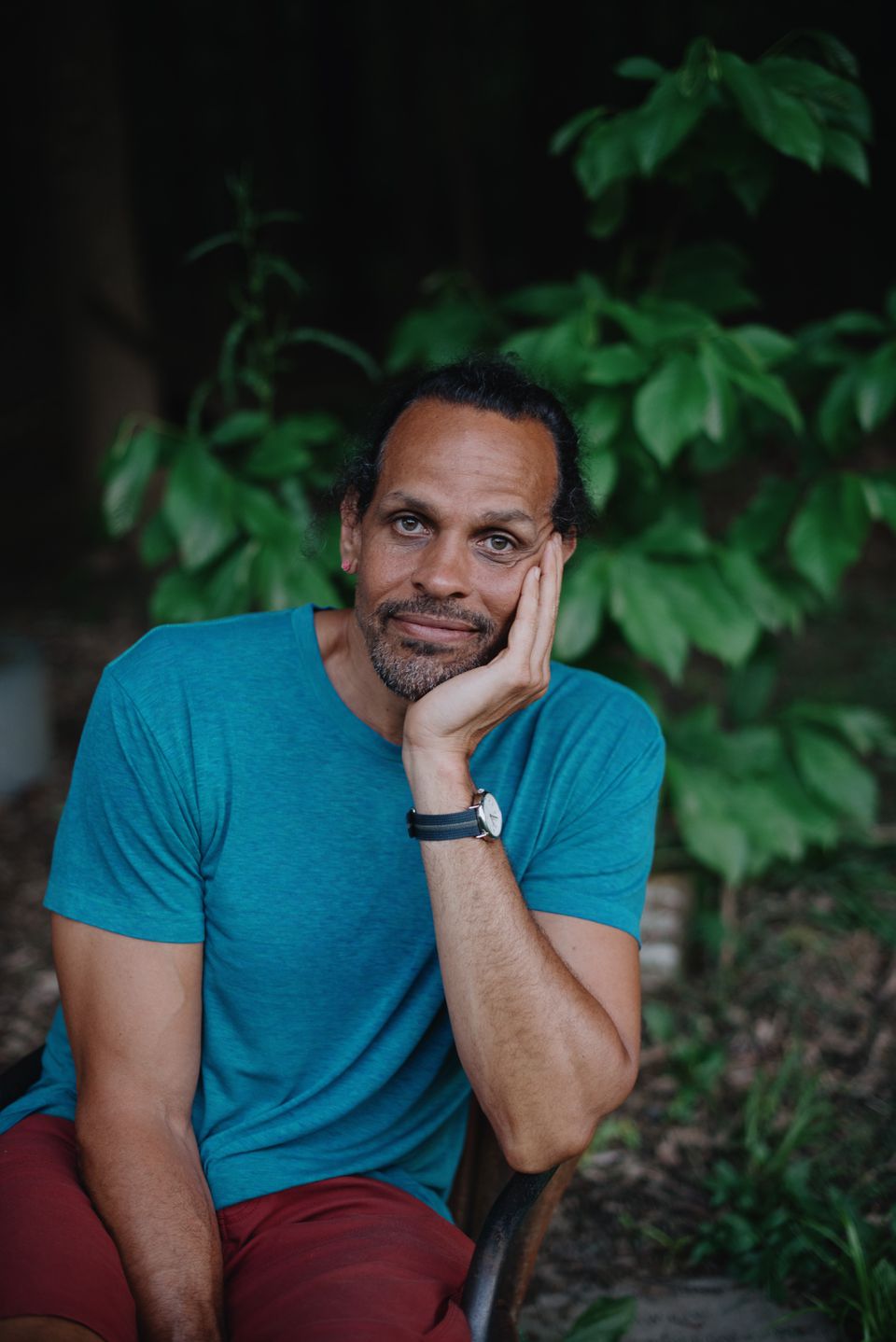/cloudfront-us-east-1.images.arcpublishing.com/bostonglobe/KT3XJNLELBCALNRJHZECZLRLS4.jpeg)
Ross Gay wants to throw a party for your sorrows. It’ll be a raucous affair, with dancing, fabulous covers of all your favorite songs, tons of food, a backyard full of folks — some you know, some you don’t — and all their sorrows, too. Everyone will bring a dish, and somehow, even though your house is a mess, everyone will feel a little lighter, because of this shared carrying and caring.
In Gay’s new book of essays, “Inciting Joy,” out Tuesday, the writer explores the intersections between grief and loss as well as opportunities for joy. Numbered as “incitements,” these essays are arguments embedded in stories that stretch like rubber bands around the topics of laughter, basketball, skateboarding, gardening, time, dying, music, gratitude, and dancing. It’s impossible to read them without feeling a shift in yourawareness of joy and its unexpected possibilities.
Advertisement
The prize-winning poet will appear at the Brookline Booksmith on Friday and as part of the Boston Book Festival on Saturday. Ahead of the release of “Inciting Joy,” Gay sat down with the Globe to discuss the transgressive and complex nature of joy and his newfound love of the essay form.

Q. Since the publication of your last book of essays, “The Book of Delights,” in 2019, what are some ways you’ve found delight, especially during the pandemic?
A. I’ve been gardening, keeping up with people, writing, trying to take care of my relationships. Talking to my mom on Zoom. [Laughs] My dear mother, she could not figure out how to make it look at her face instead of her forehead.
Q. In “Inciting Joy,” you consider joy instead of delight. How would you describe the relationship between delight and joy?
A. Things like time are a component of delight: You have time to walk, smell the flowers, have a conversation. If you are working 60 hours a week in miserable conditions, which so many people are, there’s not a whole lot of time for these other things that actually give our lives meaning. Joy is a more grave emotion that’s effectively born of our sorrows, born of our heartbreaks. When we join each other in our heartbreaks, or we help each other carry our heartbreaks, that’s when joy emerges. Joy does not exist without sorrow. It does not exist without heartbreak.
Advertisement
Q. The essays in this collection are packed with storytelling. They’re also directives. (”Share your bucket!” which is about skateboarding, is the fifth incitement; losing your phone is the seventh.) What made you decide to organize the book by incitements? It’s almost like joy is transgressive or unlawful.
A. [Laughs] Exactly. I’m thinking about one of my skateboarding heroes, Mark Gonzales, running from the law when he’s skating in front of a bank or something. When I say that we’re inciting, I’m wondering about the ways we care for one another, the ways we are remarkably loving with one another, and how those ways are a profound repudiation of this manufactured belief that we would not manage to care for one another if it weren’t for [institutions] that brutalize us.
Q. You don’t have a social media presence, and I’ve heard you’re pretty low-tech. What’s the connection between refusal and finding joy?
A. The Book of Refusal could be another title for this book. Fifteen years ago when [phones] first came out there were [social] codes. You didn’t really talk on your phone out loud and in public. Now, all of these things make us less caring to those we love. And If we’re not open to what’s in front of our faces, if we aren’t aware of who is present, that’s a real recipe for being bummed out.
Advertisement
Q. How does your version of joy differ from, say, the Marie Kondo version of only keeping items that “spark joy”? Can an item bring you joy?
A. I have this pawpaw sitting in front of me that I’m gonna eat, from a tree that my partner and I grew. It’s sometimes called the Indiana Banana; it tastes like a mix of banana and pineapple. Just telling you about it, I feel a lot of joy! And I have other things, like my father’s slippers, and scarves from people who are no longer around, and I’m glad to have them. They make me feel connected, and I’m glad to have them.
Q. One of the many delights of this collection are the extensive and lengthy footnotes. Why did you decide to include them?
A. I’m so glad you asked! They’re a formal element to me, and they came about in the process of writing. They’re a way to digress the way you might in conversation, and a really interesting way to slide mini essays into these discrete meditations. I’ve always loved the footnotes in Junot Diaz’s “The Brief and Wondrous Life of Oscar Wao.” It’s like the writer stepping out from behind the story and filling you in on stuff that you need to know to understand the book.
Advertisement
Q. You’re well known for your poetry. What do you think essays communicate that poetry maybe doesn’t or can’t?
A. There’s something about a relationship to an audience, so with essays you’re in conversation with people who you might not otherwise be on account of writing poems. I’m really interested in the essay form because there’s not really a way to do it, so it feels more open than poetry does. The essay really means just an attempt, or an effort; it could really be anything. And, in my writing, I like to do what I don’t know how to do.
Interview was condensed and edited for clarity.
Rachel Becker is a poet, writer, and teacher of English and creative writing at Newton South High School. She can be reached at rebecker@gmail.com.








